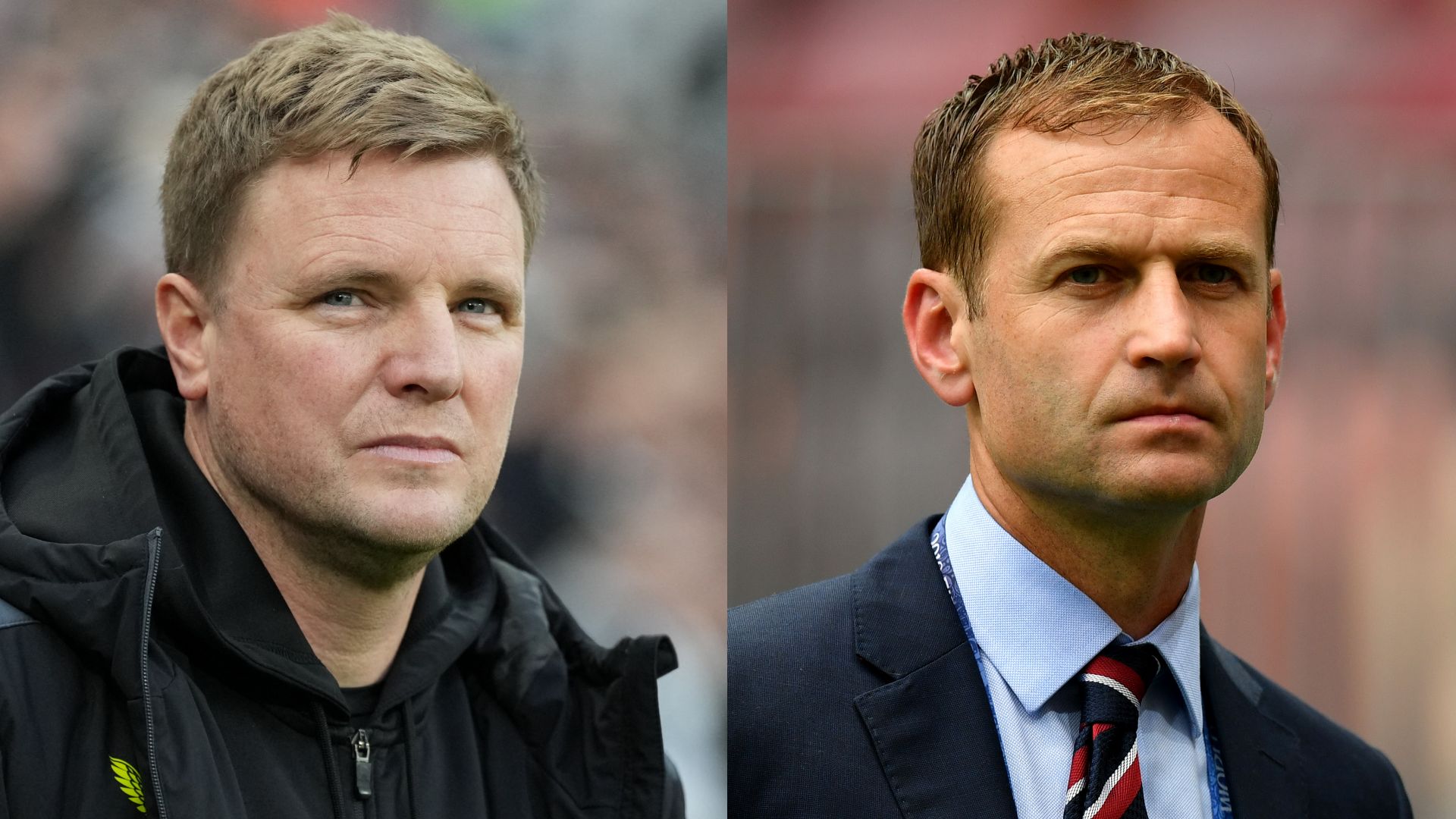Few names carry as much weight as Dan Ashworth. The former Manchester United sporting director, who was recently axed by Sir Jim Ratcliffe as part of a broader restructuring at Old Trafford, has swiftly landed a new role, underscoring his reputation as one of the most respected figures in the sport. Ashworth’s appointment to a high-profile position at another top club marks the latest chapter in a career defined by innovation, strategic vision, and an uncanny ability to build successful footballing structures.
Ashworth’s departure from Manchester United came as a surprise to many, given his track record of success at previous clubs. Hired with much fanfare, he was seen as a key figure in Sir Jim Ratcliffe’s ambitious plans to restore United to the pinnacle of English and European football. However, changes in leadership and shifting priorities led to his exit, leaving fans and pundits to speculate about his next move.
It didn’t take long for Ashworth to resurface. Known for his meticulous planning and forward-thinking approach, he has been appointed as the new Director of Football at a prominent European club, where he will oversee player recruitment, youth development, and long-term strategic planning. The move is a testament to Ashworth’s standing in the football community and the high regard in which he is held by clubs across the continent.
Ashworth’s career has been marked by a series of high-profile successes. Before his stint at Manchester United, he served as the Technical Director at the English Football Association (FA), where he played a pivotal role in the development of the England national team. His efforts were instrumental in the creation of the “England DNA,” a blueprint for player development that has since produced a golden generation of talent, including the likes of Phil Foden, Jude Bellingham, and Bukayo Saka..png?auto=webp&format=pjpg&width=3840&quality=60)
Prior to his time at the FA, Ashworth made his name at West Bromwich Albion, where he helped establish the club as a stable Premier League side. His ability to identify and nurture talent, coupled with his knack for building cohesive teams, earned him widespread acclaim. These achievements paved the way for his move to Brighton & Hove Albion, where he further cemented his reputation as a visionary in football administration.
At Brighton, Ashworth’s impact was transformative. He implemented a data-driven approach to recruitment, focusing on identifying undervalued players with high potential. This strategy not only helped Brighton compete with wealthier clubs but also turned them into a model for sustainable success in the Premier League. His work laid the foundation for the club’s recent achievements, including their historic qualification for European competition.
Ashworth’s new role presents an exciting opportunity for both him and his new club. Tasked with overseeing football operations, he will be expected to bring the same level of innovation and strategic thinking that has defined his career. His appointment is seen as a statement of intent, signaling the club’s ambition to compete at the highest level and build a sustainable future.
For Ashworth, the move represents a chance to once again prove his worth in a high-pressure environment. His ability to adapt to different challenges and deliver results has been a hallmark of his career, and there is little doubt that he will approach his new role with the same level of dedication and professionalism.
The football world will be watching closely as Ashworth embarks on this new chapter. His success or failure will not only shape the fortunes of his new club but also influence the broader conversation about the role of sporting directors in modern football. In an era where the margins between success and failure are increasingly narrow, the importance of effective leadership and strategic planning cannot be overstated.
Ashworth’s journey also highlights the transient nature of football management. Despite his abrupt exit from Manchester United, he has quickly found a new opportunity, demonstrating the resilience and adaptability that are essential in such a competitive industry. His ability to bounce back from setbacks and continue to thrive is a testament to his character and expertise.
For Manchester United, Ashworth’s departure raises questions about the direction of the club under Sir Jim Ratcliffe’s ownership. While change is often necessary in football, the loss of a figure as experienced and respected as Ashworth could have long-term implications. The club’s ability to replace him with someone of equal caliber will be crucial as they seek to rebuild and challenge for major honors.
As Dan Ashworth begins his new role, the focus will be on how he can replicate his past successes and deliver results in a fresh environment. His track record suggests that he is more than capable of rising to the challenge, and his appointment is likely to be seen as a coup for his new club.
In the fast-paced world of football, where fortunes can change in an instant, Dan Ashworth’s story is a reminder of the importance of resilience, vision, and adaptability. His new role represents not just a fresh start for him, but also an opportunity to once again shape the future of a football club. As he takes on this latest challenge, one thing is certain: Dan Ashworth’s influence on the game is far from over.



